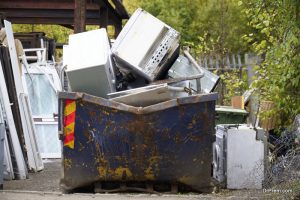Top 10 Strategies for Efficient Rubbish Removal
Effective rubbish removal is essential for maintaining a clean and healthy environment. Whether you’re managing household waste, commercial waste, or construction debris, having a strategy in place can save time, money, and effort. Here are the top 10 strategies for efficient rubbish removal that will help you handle waste like a pro.
1. Develop a Waste Management Plan
Creating a comprehensive waste management plan is the first step towards efficient rubbish removal. This plan should outline the types of waste you generate, the best methods for disposing of each type, and the frequency of rubbish collection. A well-structured plan helps in organizing waste management activities systematically.
1.1 Identify Waste Categories
Identify the different types of waste such as organic, recyclable, hazardous, and non-recyclable. Segregating waste at the source makes it easier to manage and dispose of properly.
1.2 Set Collection Schedules
Determine the optimal frequency for waste collection based on the volume of waste generated. Regular collection prevents waste accumulation and reduces the risk of pest infestations and unpleasant odors.
2. Reduce, Reuse, Recycle
The three Rs – Reduce, Reuse, Recycle – form the foundation of efficient waste management. Implementing these practices minimizes waste generation and promotes sustainable living.
2.1 Reduce Waste Generation
Encourage the use of products that generate less waste. Opt for items with minimal packaging, buy in bulk, and avoid single-use plastics.

Top 10 Strategies for Efficient Rubbish Removal
2.2 Reuse Items
Find new uses for old items instead of discarding them. Repurposing and upcycling can significantly cut down on waste.
2.3 Recycle Properly
Ensure that recyclable items are clean and dry before placing them in the recycling bin. Familiarize yourself with local recycling guidelines to avoid contamination.
3. Compost Organic Waste
Composting is an excellent way to manage organic waste such as food scraps and yard waste. It not only reduces the amount of waste sent to landfills but also produces nutrient-rich compost for gardening.
3.1 Start a Compost Bin
Set up a compost bin in your backyard or use a kitchen composting system for indoor use. Add green (nitrogen-rich) and brown (carbon-rich) materials in the right ratio for efficient composting.
3.2 Maintain Your Compost
Turn the compost regularly to aerate it and speed up the decomposition process. Monitor moisture levels to ensure the compost remains damp but not waterlogged.
4. Use Professional Rubbish Removal Services
Hiring professional rubbish removal services can save time and ensure that waste is disposed of responsibly. These services are particularly useful for bulky items, hazardous waste, and large volumes of rubbish.
4.1 Choose a Reputable Service
Research and select a reputable rubbish removal service that follows environmental regulations and has positive customer reviews.
4.2 Schedule Regular Pickups
Arrange for regular pickups to avoid waste buildup. Many services offer flexible scheduling to accommodate your needs.
5. Donate or Sell Unwanted Items
Before discarding items, consider donating or selling them. Many charities accept donations of clothing, furniture, and electronics, while online marketplaces can help you sell items in good condition.
5.1 Identify Donation Centers
Find local donation centers or charities that accept the items you want to give away. Ensure that donated items are clean and functional.
5.2 Use Online Marketplaces
Sell unwanted items through online platforms such as eBay, Craigslist, or Facebook Marketplace. This not only reduces waste but also provides an opportunity to make some extra money.
6. Use Efficient Waste Containers
Invest in high-quality waste containers that are suitable for your waste types. Proper containers can prevent leaks, spills, and pest infestations. https://woodysskips.com.au/rubbish-removal-gold-coast/
6.1 Choose the Right Size
Select containers that match the volume of waste you generate. Overfilled containers can lead to spills and unsanitary conditions.
6.2 Use Labelled Bins
Clearly label bins for different types of waste to encourage proper segregation and disposal.
7. Educate and Involve the Community
Community involvement is crucial for successful waste management. Educate family members, neighbors, and colleagues about proper waste disposal practices.
7.1 Conduct Awareness Campaigns
Organize workshops, seminars, and information sessions to raise awareness about waste management and recycling.
7.2 Encourage Participation
Involve the community in cleanup drives and recycling programs. Collaborative efforts can significantly improve waste management outcomes.
8. Utilize Technology
Leverage technology to streamline rubbish removal processes. Mobile apps, smart bins, and waste tracking systems can enhance efficiency and accountability.
8.1 Use Waste Management Apps
Many apps provide information on recycling guidelines, pickup schedules, and drop-off locations for hazardous waste.
8.2 Implement Smart Bins
Smart bins equipped with sensors can monitor waste levels and optimize collection schedules, reducing unnecessary pickups.
9. Dispose of Hazardous Waste Properly
Hazardous waste such as chemicals, batteries, and electronic waste requires special handling and disposal methods to prevent environmental contamination.
9.1 Identify Hazardous Waste
Recognize items that are considered hazardous and cannot be disposed of with regular rubbish. These include paint, pesticides, and certain cleaning products.
9.2 Use Designated Facilities
Take hazardous waste to designated disposal facilities or collection events organized by local authorities. Never dispose of hazardous waste in regular bins or down the drain.
10. Monitor and Improve
Regularly review your waste management practices and look for areas of improvement. Continuous monitoring ensures that your strategies remain effective and sustainable.
10.1 Conduct Waste Audits
Perform periodic waste audits to analyze the types and amounts of waste generated. Use this data to adjust your waste management plan accordingly.
10.2 Stay Informed
Keep up with the latest developments in waste management technologies and practices. Adopting new methods can enhance efficiency and environmental impact.
Implementing these top 10 strategies for efficient rubbish removal can transform how you manage waste. By being proactive and adopting sustainable practices, you contribute to a cleaner, healthier environment for everyone.
